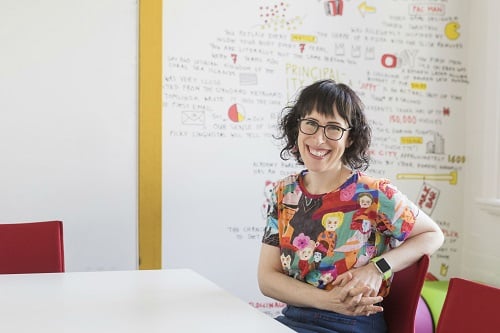

Social awkwardness may be derided in Australian culture but there are plenty of successful brokers who self-identify as something other than outgoing – and that certainly doesn’t make them less capable than their confident counterparts.
In fact, research conducted by academics at Oxford University found that awkward individuals actually have some advantages over those who are more gregarious.
According to the researchers, awkward people often have the ability to focus far more intently than those who are comfortable in social situations – particularly, when it comes to activities that are governed by rules or logic.
“Awkward people show an exuberance for taking things apart, obsessively studying the components, then systematically putting those parts together in a new way,” explains phycologist Ty Tashiro.
It stands to reason, then, that socially awkward people would make capable and adept insurance brokers – even though the profession does require significant interpersonal skills.
Of course, social skills can be developed over time and Tashiro says there are plenty of innately awkward people who have picked up tricks along the way to help them navigate social situations.
Self-styled innovation psychologist Amantha Imber agrees – she says she’s taught effective techniques to countless business leaders to help them make the most of professional networking opportunities.
“One of the best ways to look at professional networking is to set yourself some goals rather than focussing on how socially awkward, nervous or shy you might be feeling,” says Imber.
As an example, Imber says she might go to a conference with the predetermined goal of having three meaningful conversations with three people she’s never met before.
“That way, rather than focussing on the awkwardness of meeting new people, the focus is on meeting a goal,” says Imber. “This works particularly well if you’re a goal-oriented socially awkward person.”
Imber also revealed she’d met a self-confessed social outsider at a recent TED conference, who had created their own innovative technique to master professional networking situations.
“They told me they treat conferences like a video game, and they were scoring points every time they spoke to someone new and made a connection,” she said.
Aside from goals and video games, Imber says an equally important technique to overcome social awkwardness comes down to adequate preparation.
“For me, I find it hugely beneficial to do my research beforehand – so looking at the delegate list, deciding who I want to meet and googling them beforehand so I can identify some points of commonality,” says Imber. “That way, I can launch straight into interesting conversation rather than having to do small talk.”
A third way of approaching it, according to Imber, is to make sure you have something interesting to bring to any conversation.
“Inevitably, people will ask what you do or what you’ve been up to and if you’re put on the spot, for a socially-awkward person, that can be difficult to answer,” she says.
“So think about what your go-to conversation starter can be – something that might be of interest to other people but that you’re very comfortable talking about.”
The same principles for overcoming professional networking situations apply to winning clients and building meaningful relationships, says Imber.
“The good thing with meeting clients is you’ve got time to do research and it can be really focused research so before any business meeting, you can check people out and find that point of commonality,” she says.
Finally, one of the key things for any socially awkward broker to remember is that up to 50% of the population are introverts – so there are almost certainly other people feeling uncomfortable.
“We all think nobody else feels as socially awkward or as shy as we do but the reality is, not many people see themselves as socially confident and gregarious – they’re the outliers,” says Imber.
“Just remember, there will be lots of other people at any conference or networking event who feel exactly the same as you do and they would welcome someone coming up, introducing themselves and saying hello.”
